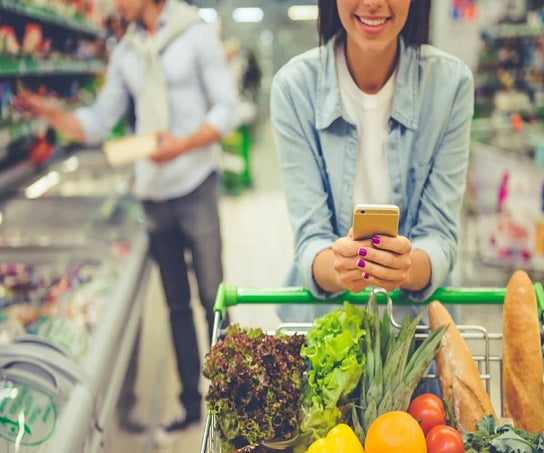Plastic bags have become a basic part of life for the modern man; hence, hardly anyone gives much thought to them. Since they are quite economical and readily available in various sizes, it is especially popular in supermarkets and department stores. However, using these easy-to-carry bags has long term implications that cannot be overlooked.
Plastic is extracted from fossil fuels such as oil and petroleum, that are non-renewable resources in themselves. Plastic bags are a major contributor to the increasing plastic pollution. Being non-biodegradable, they stay in the environment for thousands of years significantly polluting the environment. They also play a huge role in the rising rate of species extinction: there is an estimated 270,000 ton of plastic floating through the world’s seas, threatening more than 700 marine species with its presence.

Today, whether you are in a city or living in a village, it is not uncommon to see plastic bags littering around in places where they don’t belong to- stuck to the branches of trees or floating around in your neighborhood. According to an estimate, more than 10 million plastic bags are being used every minute around the world.
Many countries around the globe, like Italy, China, and Bangladesh, have completely banned the use of plastic bags. There are many ways to help recycle and reduce such waste- not only at the corporate or society level but also at an individual level. Small efforts by every individual are sure to go a long way in helping save our environment. The point is to bring a conscious change in your daily habits.
Taking a simple example, whenever a person makes an everyday purchase in a department store, he or she would often walk out with at least one plastic bag in hand. Leaving the store with a plastic bag, and then what you do with it later, is all that makes a difference. Just some alterations in your grocery shopping habits can bring about a huge change.
Here are 6 Ways to Reduce Plastic Bags wastage:
- Decline Plastic bag: Though they are small and light, plastic bags have a larger environmental footprint than your imagination, especially the energy required to make them. Although we are surrounded by plastic bags and cutting it out can be dismaying, it is very important to reduce its use. It often happens that grocery store employees are trained to separate different types of items in different bags or to use one bag for only one or two products. If possible, hand-carry the items; or you could carry your own shopping bag with you.
- Bring reusable shopping bags: Carry a reusable shopping bag with you. The biggest challenge of this is remembering creating a habit to take them to the store. Keep them at all times with you- in your car, in your handbag, at all the times. Many of the reusable bags can carry a greater number of items than a plastic bag, which is less of a hassle when there are a lot of groceries to carry. Thus, instead of several different plastic bags, you would need only a few of the reusable bags to go around.
- Keep Recycling: Many stores have already started using recycled products. Today, some grocery stores also have a place where you can drop your used plastic bags so that they can be recycled and reused. There are many creative ways in which plastic bags can be reused. It can even save money and time or can be used for fun activities. For instance, plastic bags can be used as liners for garbage cans. Although the process of recycling is catching up, still the overall recycling rates are very low. Globally, only 18 percent of plastic is recycled. In Europe, only about 30 percent is recycled, 25 percent in China, whereas the United States manages only 9 percent.
- Pass up Plastic Straws: More than 50 billion plastic straws are used once and thrown away in the world in a single day. They pose a big threat to our environment. You can easily take a step against it by saying “no, thanks” when offered a plastic straw next time. Whether you are using at home or ordering a drink when out, plastic straws are generally a single-use item that can easily be avoided. Also, there are more sustainable and environment-friendly alternatives available in the market. Many companies in the world have taken a pledge to ban, or greatly limit, the use of plastic straws, including but not limited to American Airlines, Starbucks, Hilton, Hyatt, Marriott International, etc.
- Avoid Plastic Packaging: You can take small steps to ensure contribution at your end. Some simple ways are: prefer buying a soap bar instead of liquid soap, shop in bulk, avoid buying frozen foods as their packaging is mostly plastic, give up plastic plates or cups. Sometimes, even the packaging that appears to be cardboard is coated with a thin layer of plastic. The more you reduce your consumption of frozen convenience foods, the less plastic waste will be generated, and the healthier you will be.
- Skip Plastic Bottles: Many cities have partially or completely banned bottled water. The list also includes Australia and San Francisco. However, around a million beverage bottles that are made of plastic are sold almost every minute around the world. So, you can go for a refillable water bottle which comes with filters to ensure the quality of water. One can even use a reusable bottle or a mug for beverages, even while ordering from a to-go shop.
The list is not meant to be formidable but simply to show you what is possible and what you can do. It is often easy to tell others how to conserve and save resources, but more difficult to follow it yourself. However, following these small and simple steps to alter your grocery shopping habits can be your way of following through your beliefs.

